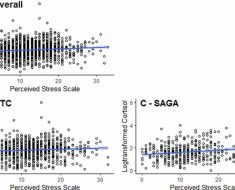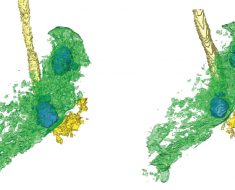Depending on age, humans need 7 to 13 hours of sleep per 24 hours. During this time, a lot happens: Heart rate, breathing and metabolism ebb and flow; hormone levels adjust; the body relaxes. Not so much in the brain.
“The brain is very busy when we sleep, repeating what we have learned during the day,” said Maxim Bazhenov, PhD, professor of medicine and a sleep researcher at University of California San Diego School of Medicine. “Sleep helps reorganize memories and presents them in the most efficient way.”
In previous published work, Bazhenov and colleagues have reported how sleep builds rational memory, the ability to remember arbitrary or indirect associations between objects, people or events, and protects against forgetting old memories.
Artificial neural networks leverage the architecture of the human brain to improve numerous technologies and systems, from basic science and medicine to finance and social media. In some ways, they have achieved superhuman performance, such as computational speed, but they fail in one key aspect: When artificial neural networks learn sequentially, new information overwrites previous information, a phenomenon called catastrophic forgetting.
“In contrast, the human brain learns continuously and incorporates new data into existing knowledge,” said Bazhenov, “and it typically learns best when new training is interleaved with periods of sleep for memory consolidation.”
Writing in the November 18, 2022 issue of PLOS Computational Biology, senior author Bazhenov and colleagues discuss how biological models may help mitigate the threat of catastrophic forgetting in artificial neural networks, boosting their utility across a spectrum of research interests.
Source: Read Full Article





